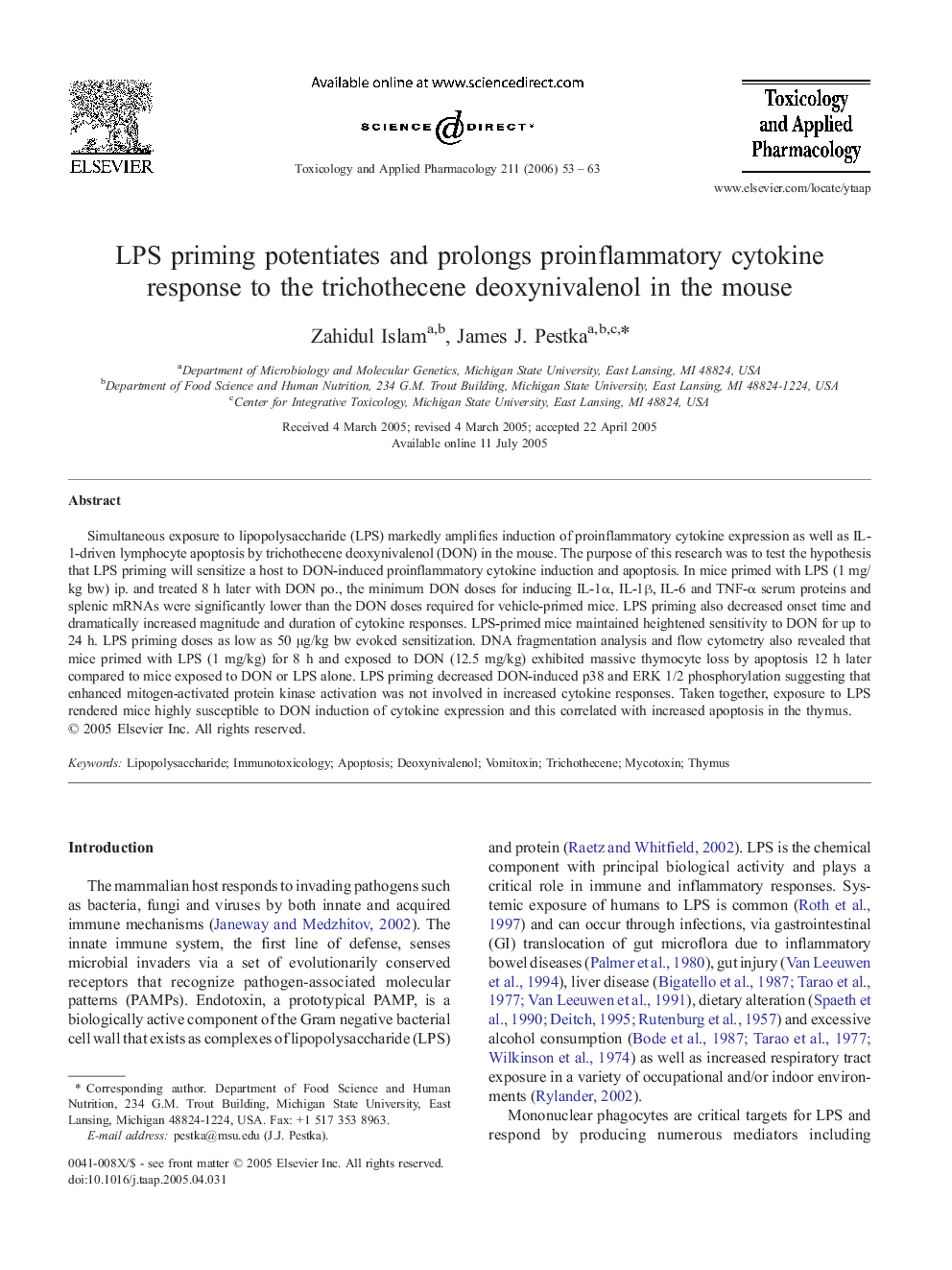| Article ID | Journal | Published Year | Pages | File Type |
|---|---|---|---|---|
| 2571970 | Toxicology and Applied Pharmacology | 2006 | 11 Pages |
Simultaneous exposure to lipopolysaccharide (LPS) markedly amplifies induction of proinflammatory cytokine expression as well as IL-1-driven lymphocyte apoptosis by trichothecene deoxynivalenol (DON) in the mouse. The purpose of this research was to test the hypothesis that LPS priming will sensitize a host to DON-induced proinflammatory cytokine induction and apoptosis. In mice primed with LPS (1 mg/kg bw) ip. and treated 8 h later with DON po., the minimum DON doses for inducing IL-1α, IL-1β, IL-6 and TNF-α serum proteins and splenic mRNAs were significantly lower than the DON doses required for vehicle-primed mice. LPS priming also decreased onset time and dramatically increased magnitude and duration of cytokine responses. LPS-primed mice maintained heightened sensitivity to DON for up to 24 h. LPS priming doses as low as 50 μg/kg bw evoked sensitization. DNA fragmentation analysis and flow cytometry also revealed that mice primed with LPS (1 mg/kg) for 8 h and exposed to DON (12.5 mg/kg) exhibited massive thymocyte loss by apoptosis 12 h later compared to mice exposed to DON or LPS alone. LPS priming decreased DON-induced p38 and ERK 1/2 phosphorylation suggesting that enhanced mitogen-activated protein kinase activation was not involved in increased cytokine responses. Taken together, exposure to LPS rendered mice highly susceptible to DON induction of cytokine expression and this correlated with increased apoptosis in the thymus.
